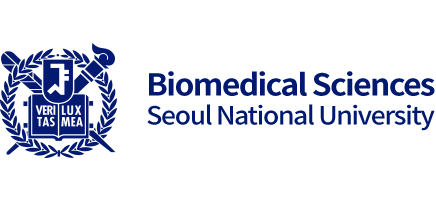Research
Research Field
Cancer research using cell lines has the advantages of not only being able to obtain target cells indefinitely, but also performing reproducible experiments, investigating intracellular metabolism, and manipulating various homeostatic factors. Cell lines are currently used as the essential model in a variety of researches including cell differentiation, gene expression, drug sensitivity, immunity, cell invasions and metastasis, antigen expression and secretion, development of single-cell antibody, factors for growth and inhibition and genomic profiling. Therefore, it is crucial to establish a variety of cell lines that are well-characterized.Seoul National University Cancer Institute's Cell Biology Laboratory and the Korean Cell Line Bank (KCLB) have established and distributed patient-derived cell lines since 1982 so that researchers in field of life sciences can use them for research conveniently. Over 2,000 cell/organoid lines originated from multiple organs were established and preserved as a result of cultivating more than 8,600 individual tissues by KCLB. Furthermore, KCLB is still continuing to develop various types of cell line stocks to contribute to related research field.
In 2017, Ministry of Science and ICT designated KCLB as the Life Research Resource Conservation Agency. In addition, since 2020, KCLB has also been designated as the institution for National Strategic Life Research Resource (cell line) that provides central infrastructure of national research related to the cell lines.
Experimental models for cancer research include cancer cell lines, patient-derived PDXTs, and cancer tissue-derived organoids. Organoids are organized by self-renewal and differentiation from embryonic stem cells, iPSC and adult stem cells under specific growing environment. Many biomedical scientists over the world have mentioned about 3D ex-vivo model as a type of mini-organ that was demonstrated to represent physiologically similar in vivo system while being incubated in a three-dimensional tumor microenvironment.
Organoid-based research platforms exhibit a variety of potential applications including drug screening, bio-banking, infectious diseases and, by extension, regenerative therapy via genomic correction, personalized and precise treatment in conjunction with patient's genomic profiles.
Since 2016, Our laboratory has been developing and establishing organoid lines derived from various tissues. At the same time, we have characterized the established organoids using Next Generation Sequencing (NGS) and pharmacological analysis.
Keyword
Establishment and characterization of human cell lines and organoids, NGS analysis and anticancer drug screening (HTS) in cancer cell lines and organoids, exosomal miRNA profiling in liquid biopsy andEducation
- 1994.3-1998.2 Ph.D., Department of Veterinary Medicine,
- Seoul National University (Tumor cell biology, Cancer genetics)
- 1992.3-1994.2 M.S., Department of Veterinary Medicine,
- Seoul National University (Veterinary Pathology)
- 1988.3-1992.2 B.S., (D.V.M.), College of Veterinary Medicine,
- Seoul National University
Career
- 2021.01.-present, PI of Central Bank of Cell Culture Cluster,
- designated by MSIT (Ministry of Science and ICT)
- 2017.09.-present, PI of Korean Cell Line Bank, (http://cellbank.snu.ac.kr)
- KCLB was designated as one of National Bioresource Depositories to
- deposit, registration and conservation of bioresources by MSIT (Ministry
- of Science and ICT)
- 2013.08-2014.08, Guest Researcher
- NHGRI(National Human Genome Research Institute)/GMBB
- NIH, USA
- 2013.06-present, Professor
- Department of Biomedical Sciences
- Seoul National University College of Medicine, Seoul, Korea
- 2010.10-present, Professor
- Department of Medicine
- Seoul National University College of Medicine, Seoul, Korea
- 2002.-2019, PI, of Korean Cell Line Bank, (http://cellbank.snu.ac.kr)
- supported by National Research Foundation of Korea
- 2001.09-2010.09 Assistant and Associate Professor
- Cancer Research Institute/Department of Medicine,
- Seoul National University College of Medicine, Seoul, Korea
- 1994.09-2001. Research Scientist fellow and Senior Research Fellow
- Laboratory of Cell Biology, Cancer Research Center,
- Seoul National University College of Medicine, Seoul, Korea
Publication
- Exosomal miR-193a and let-7g accelerate cancer progression on primary colorectal cancer and paired peritoneal metastatic cancer. Transl Oncol. 2021 Feb;14(2):101000.
- Establishment and characterization of 18 human colorectal cancer cell lines. Sci Rep. 2020 Apr 22;10(1):6801.
- Identification of a Novel Fusion Gene, FAM174A-WWC1, in Early-Onset Colorectal Cancer: Establishment and Characterization of Four Human Cancer Cell Lines from Early-Onset Colorectal Cancers. Trans Oncol, 2019, 12, 1185-1195.
- Clonal History and Genetic Predictors of Transformation Into Small-Cell Carcinomas From Lung Adenocarcinomas. J Clin Oncol. 2017;35(26):3065-3074.
- Complex Chromosomal Rearrangements by Single Catastrophic Pathogenesis in NUT Midline Carcinoma. Ann Oncol. 2017;28(4):890-897.




